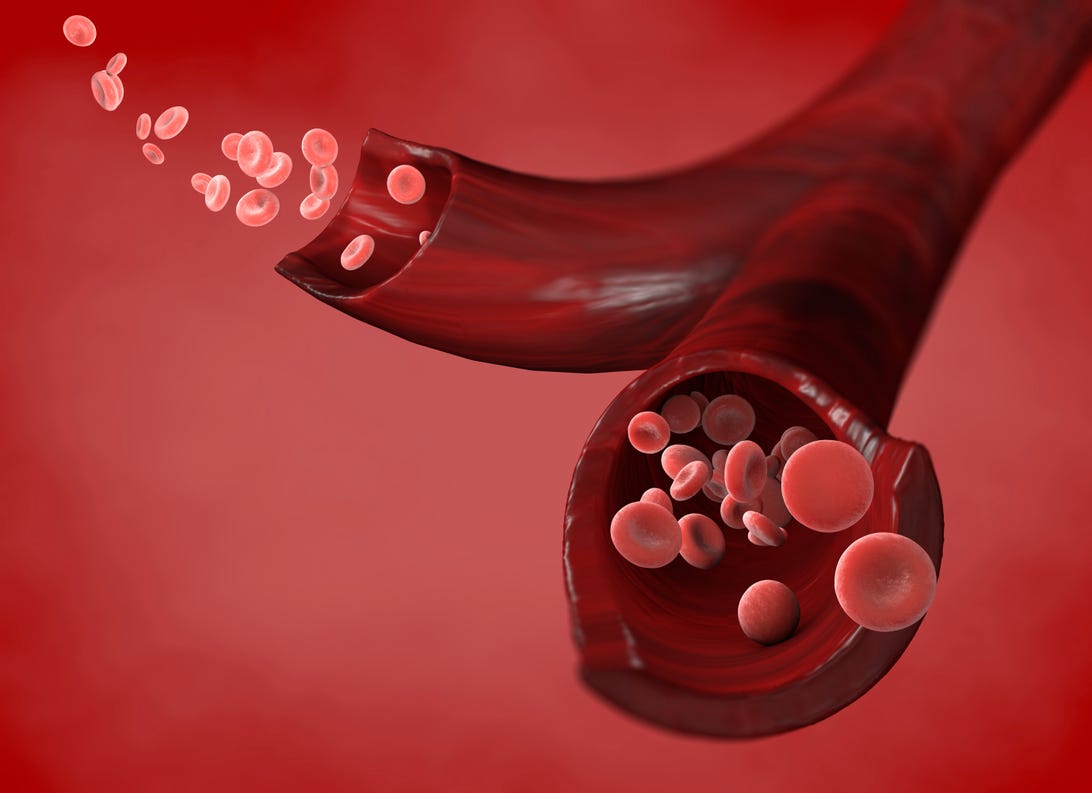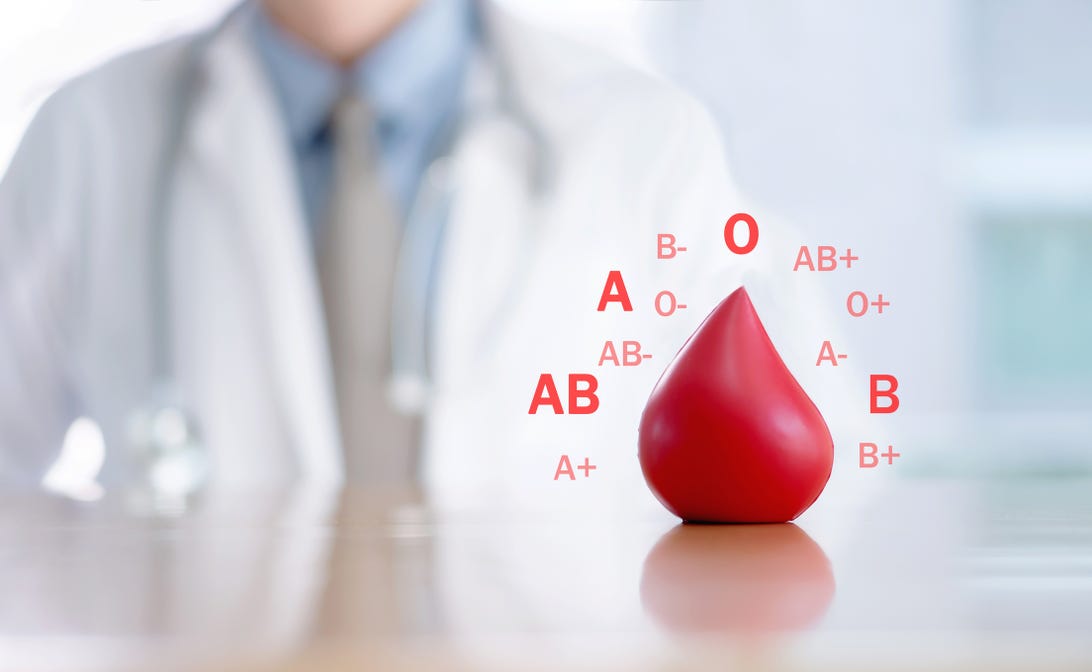Why Blood Type Matters for Heart Health, According to Science

Naeblys/Getty Images
Do you know your blood type?
Unless you’ve donated blood, were given a transfusion or found out during pregnancy, maybe you’ve never thought twice about it. But coursing through your veins every second of every day are tiny variations that categorize your blood into one of these groups: A+, A-, B+, B-, O-, O+, AB+ and AB-.
Ongoing research into blood type suggests it may matter more than we give it credit for — at least when assessing risk for certain health conditions, especially heart disease. These invisible differences in the blood may give some people an edge at staving off cardiovascular problems, and may leave others more susceptible.
What does blood type mean, and how are they different?
The letters A, B and O represent various forms of the ABO gene, which program our blood cells differently to form the different blood groups. If you have type AB blood, for example, your body is programmed to produce A and B antigens on red blood cells. A person with type O blood doesn’t produce any antigens.
Blood is said to be “positive” or “negative” based on whether there are proteins on the red blood cells. If your blood has proteins, you’re Rh positive.

Ekachai Lohacamonchai/EyeEm/Getty Images
People with type O- blood are considered “universal donors” because their blood doesn’t have any antigens or proteins, meaning anybody’s body will be able to accept it in an emergency.
But why are there different blood types? Researchers don’t fully know, but factors such as where someone’s ancestors are from and past infections which spurred protective mutations in the blood may have contributed to the diversity, according to Dr. Douglas Guggenheim, a hematologist with Penn Medicine. People with type O blood may get sicker with cholera, for example, while people with type A or B blood may be more likely to experience blood clotting issues. While our blood can’t keep up with the different biological or viral threats going around in real time, it may reflect what’s happened in the past.
“In short, it’s almost like the body has evolved around its environment in order to protect it as best as possible,” Guggenheim says.
The blood types most at-risk for heart disease

Arctic-Images/Getty Images
People with type A, type B or type AB blood are more likely than people with type O to have a heart attack or experience heart failure, according to the American Heart Association.
While the increased risk is small (types A or B had a combined 8% higher risk of heart attack and 10% increased risk of heart failure, according to one large study) the difference in blood clotting rates is much higher, per the AHA. People in the same study with type A and B blood were 51% more likely to develop deep vein thrombosis and 47% more likely to develop a pulmonary embolism, which are severe blood clotting disorders which can also increase the risk of heart failure.
A reason for this increased risk, according to Guggenheim, might have to do with inflammation that happens in the bodies of people with type A, type B or type AB blood. The proteins present in type A and type B…
Read More:Why Blood Type Matters for Heart Health, According to Science
